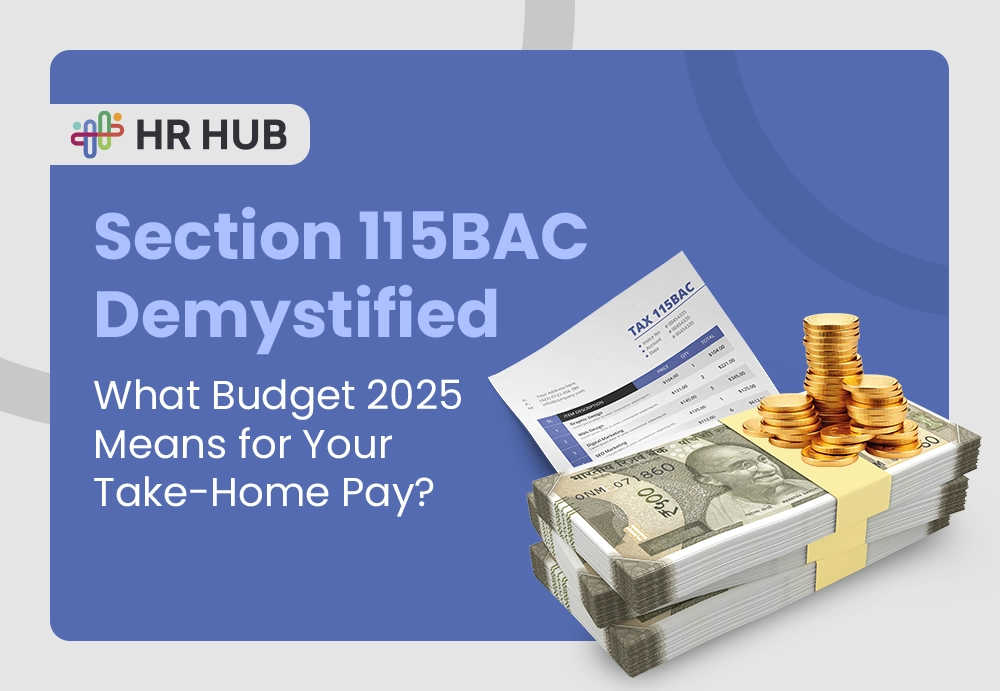


This site uses cookies to deliver our services. By using our site, you acknowledge that you have read and understand our Cookie Policy. Your use of HR HUB's services is subject to these policies.

One thing is evident when you enter a bustling hotel lobby, a busy retail establishment, or a BPO floor that is constantly flooded with calls: people are the lifeblood of these companies. However, there is a more subdued struggle going on behind the well-groomed service and happy faces. Employees come and go. Managers scramble to fill shifts. HR teams are caught in a never-ending loop of recruitment, training, and exits.
This isn’t just a minor inconvenience: it’s one of the biggest HR challenges in India, especially in sectors where customer satisfaction depends directly on employee performance. Hospitality, retail, and BPO are often called high attrition industries in India for a reason, and unless leaders understand why people leave, they’ll keep fighting the same battle.
Unlike IT or manufacturing, where employees are often tied to long projects or specialized skills, service industries rely heavily on young professionals and frontline staff. Many are first-time job seekers, working for experience, financial necessity, or as a stepping stone to other careers.
The result is predictable: a constant cycle of exits and rehires. For HR professionals, this is where the real challenge begins.
The hospitality industry in India is one of the most dynamic yet volatile employment sectors. Hotels and restaurants often need to double their workforce during holiday seasons, weddings, or tourist influx periods. But once the season ends, many of these employees walk away for better-paying jobs or more stable work.
What makes this challenge worse is the level of training required. Training a new hire is not just about teaching them to serve food, carry luggage, or manage check-ins. It’s about immersing them in the brand’s culture: from the way a server addresses guests, to the safety protocols in kitchens, to the language used on front desks. Every misstep reflects directly on the customer experience.
For HR teams, this constant cycle means high recruitment budgets, longer training schedules, and the risk of service inconsistencies. Guests rarely notice when HR has managed to train ten new staff in record time, but they instantly notice when an employee fumbles. And unfortunately, that’s what drives poor online reviews and brand reputation challenges.
Hospitality is one of the few industries where work truly never stops. Guests arrive at odd hours, events run late into the night, and frontline staff are expected to greet every customer with energy and a smile. Behind those smiles, however, are employees battling exhaustion.
Long shifts, irregular weekly offs, and the pressure of maintaining impeccable standards lead to disengagement. Many employees don’t feel connected to the long-term vision of the company; instead, they view their jobs as temporary stepping stones. This disengagement manifests as higher absenteeism, poor morale, and eventually resignations.
For HR, this is a double burden: finding replacements while also trying to keep existing employees motivated. Burnout degrades the visitor experience in addition to harming the employees. A five-star service experience can quickly become a complaint due to a disengaged employee.
On top of operational challenges, hospitality in India faces strict compliance requirements. Labor laws around overtime pay, weekly offs, and workplace safety leave little room for error. Yet with large teams working across multiple shifts, manual scheduling often leads to double-bookings, unpaid overtime, or unfair allocation of hours.
When employees feel that scheduling is biased or their time isn’t valued, dissatisfaction grows. Add compliance risks such as fines or disputes, and HR teams find themselves juggling legal battles alongside daily staffing issues.
This confusion is resolved by contemporary HR software for the hospitality industry. Hotels can guarantee a fair distribution of hours and lower employee discontent by automating shift scheduling. Compliance tools reduce legal risks, and real-time attendance tracking avoids overtime disputes.
However, technology is insufficient on its own. Employee retention is facilitated by structured internal career ladders, frequent feedback sessions, and recognition programs. When a waiter sees a future as a restaurant manager or a housekeeper realizes they can advance to supervisor, they begin to see their work as a career rather than a temporary position.
Retail thrives on India’s festival calendar. From Diwali shopping sprees to Christmas discounts, footfall can spike by 50–70% in peak seasons. This surge forces brands to hire temporary staff at short notice.
The problem? By the time these employees are trained to understand product lines, billing systems, and customer interaction standards, the season is nearly over. Many temporary staff leave once the festival is done, leaving permanent employees exhausted from carrying the workload during transition phases.
This constant “hire-train-exit” cycle drains HR budgets and makes it hard to maintain a consistent customer experience.
For many young professionals, retail jobs are not seen as careers but as stopgap roles. Sales associates, cashiers, and floor staff often work while preparing for exams or waiting for other opportunities. Competitors can easily lure them away with small salary increases or more favorable shifts.
This perception problem isn’t just about pay. It’s about the lack of visible growth opportunities. When employees don’t see a future beyond “sales staff,” their motivation dwindles. The result is a workforce that treats retail as short-term rather than long-term employment.
Retail chains often operate across cities with thousands of employees spread across outlets. HR teams managing attendance and punctuality manually find themselves buried in mismatched records. A small error in attendance tracking directly impacts payroll accuracy. When salaries are delayed or deductions appear unfair, employee trust collapses.
Moreover, store managers rarely have the tools to reward punctuality or productivity consistently, which further reduces employee motivation.
HR software for retail ensures payroll accuracy and builds trust by centralizing attendance across all locations. It also enables managers to quickly identify high performers and digitizes training modules, which speeds up the onboarding process for seasonal hires.
Retail becomes a career path rather than just a source of income for workers when they perceive that their efforts are valued and acknowledged. Employees can advance from entry-level associates to supervisory roles through technology-driven career tracking, which lessens the perception of retail as a temporary solution.
In BPOs, the work never pauses. Employees deal with international clients, often working night shifts to match overseas time zones. Add the constant pressure of call quotas, strict scripts, and frustrated customers, and burnout is inevitable.
The emotional toll is high. Employees feel undervalued when their work is judged purely on metrics like “average call handling time” or “number of issues resolved.” This transactional approach strips away the sense of purpose, making attrition an almost natural outcome.
BPO projects are highly client-specific. One project may require knowledge of U.S. banking regulations, while another could focus on technical support for software. Each client demands a different training cycle.
When employees leave quickly, HR teams must run these training cycles repeatedly, consuming resources without long-term benefit. Over time, the cost of retraining new hires outweighs the productivity they bring. This redundancy drags down profitability and team efficiency.
BPO employees often switch jobs for marginal gains: a slight increase in salary, a more convenient shift, or a better work-life balance. This churn creates instability within teams, making it difficult for organizations to maintain consistency in service delivery.
HR professionals find themselves firefighting: constantly trying to plug holes left by departing employees while convincing the existing ones not to leave.
BPO companies need a holistic approach. Wellness programs addressing stress management, meditation sessions, and mental health counseling can reduce burnout. Mentorship initiatives and career mapping can give employees a sense of progression beyond handling calls.
Technology plays a key role here, too. HR software for BPO simplifies shift management, ensuring employees don’t feel unfairly burdened. Real-time dashboards give managers insights into employee performance and well-being, enabling timely interventions. When paired with recognition programs: even small ones like celebrating consistent attendance: these tools transform the employee experience.
When employees feel supported and valued, BPO roles shift from being transitional jobs to meaningful career opportunities.
Step into a hotel lobby, a bustling retail store, or a BPO floor filled with endless chatter, and you’ll notice very different environments. But beneath these surface differences lies a strikingly similar story.
Every time an employee leaves, HR teams must restart the cycle: advertising vacancies, shortlisting resumes, conducting interviews, and rolling out training.
The investment of time and money is enormous, yet the return is short-lived if the employee moves on after a few months. This revolving door of talent drains resources and demoralizes HR teams who feel like they are stuck in a cycle of constant turnover.
Frontline staff in hospitality are asked to stay cheerful at 2 AM, retail workers are stretched thin during festival rushes, and BPO agents must handle frustrated clients across different time zones.
This continuous pressure without proper support systems leads to burnout: the silent killer of productivity and engagement.
A retail cashier rarely sees a future beyond the counter, a hotel server often doubts if they’ll ever become a manager, and a BPO associate may wonder if their career will always revolve around call handling.
When employees don’t see upward mobility, motivation evaporates. They look elsewhere, creating higher attrition.
Labor laws in India regarding weekly offs, overtime, gratuity, and workplace safety are not optional. Yet in high-turnover sectors, manual tracking often leads to mistakes.
Missed overtime payments, scheduling disputes, or inaccurate salary deductions not only spark dissatisfaction but also expose companies to penalties and reputational risks.
Put together, these patterns create the perfect storm. They explain why hospitality, retail, and BPO are known as high attrition industries in India. And the question that every HR leader faces is not whether these problems exist, but how to break the cycle without compromising service quality.
Breaking free from the attrition trap requires more than quick fixes. It calls for a shift in mindset and the adoption of structured strategies that address the core of employee dissatisfaction.
Traditional hiring often focuses only on skills and availability. But in high-turnover industries, the real question is: will the candidate stay?
Data-driven recruitment enables HR to analyze patterns, such as which backgrounds have historically led to longer tenures, and make smarter hiring decisions.
For example, candidates with a track record of customer-facing roles or those who value stability may be more likely to stay than those viewing the role as a temporary option. By integrating analytics, HR can reduce rehiring costs and build teams that last longer.
Employees leave when they feel stuck. Imagine being a hotel receptionist with no clarity on how to become a front office manager, or a BPO agent, unsure if there’s a route into training or quality roles.
By creating structured career roadmaps and pairing them with regular training programs, employers transform short-term jobs into long-term journeys.
When employees see that today’s role is just the first step in a visible ladder, attrition naturally drops.
Recognition isn’t about grand award ceremonies. It’s about the small, consistent signals that an employee’s work matters.
A “thank you” from a manager, peer-nominated awards, or quarterly recognition programs create a culture where employees feel seen. This cultural shift is powerful: employees are less likely to leave organizations where they feel valued, even if the pay difference elsewhere is marginal. Recognition becomes the emotional glue that holds teams together.
For decades, wellness was treated as an optional extra. But in industries with high attrition, it is a necessity.
Flexible scheduling that allows retail staff to rest between shifts, counseling sessions for BPO employees handling stressful calls, or wellness initiatives for hospitality workers dealing with long hours can significantly reduce burnout.
Being healthy is only one aspect of wellness; another is demonstrating to staff members that their company values them as individuals rather than merely as resources.
Manual HR processes collapse under the weight of high attrition. This is where modern HRMS software for service industries becomes indispensable.
From recruitment to payroll, attendance to compliance, a unified system reduces errors, increases transparency, and saves HR from drowning in repetitive tasks.
Employees also benefit from self-service features: applying for leave, checking schedules, or accessing payslips without constant back-and-forth with HR. By reducing friction, technology builds trust and improves the overall employee experience.
High turnover may feel like an unshakable truth in hospitality, retail, and BPO, but it doesn’t have to be. The right blend of strategy and technology can shift the narrative.
This is where HR HUB becomes a trusted ally. Designed specifically for the complexities of service-driven industries, HR HUB combines payroll, leave, attendance, recruitment, performance management, and compliance into one powerful system. For HR leaders battling attrition daily, it is not just software: it is a strategic solution to transform employee experiences.
Hospitality, retail, and BPO will always need people at their core. But with tools like HR HUB, these industries can finally reduce churn, create sustainable work environments, and rewrite the story of high turnover into one of long-term growth.


Ready to streamline your HR processes? Contact us today to learn how HR HUB can help your organization thrive. Fill out the form, and one of our experts will reply shortly. Let's empower your workforce together!

